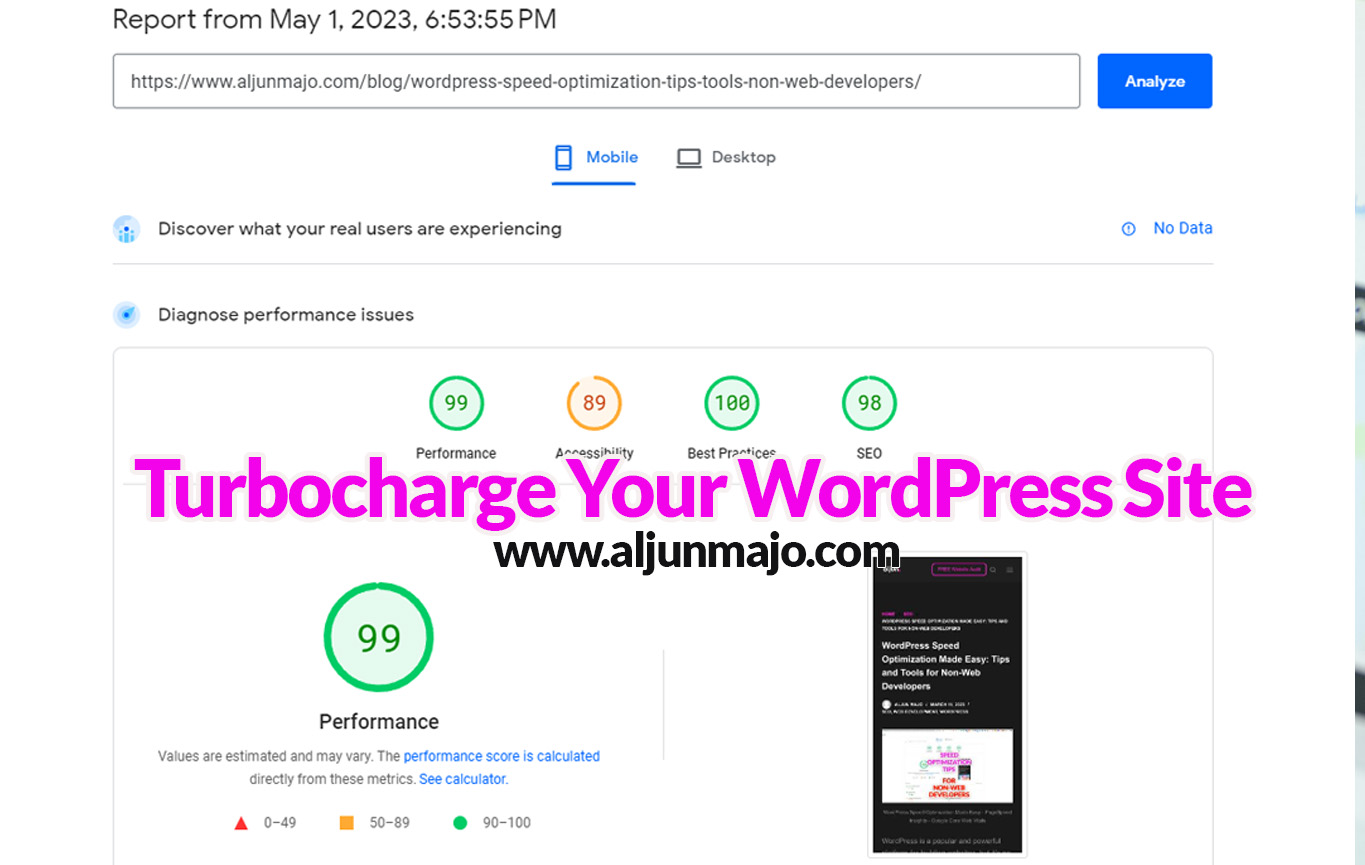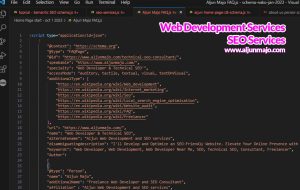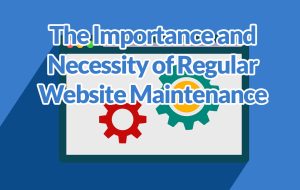In today’s digital world, it’s no secret that having a fast-loading website is crucial for both user experience and search engine rankings. You’ve likely chosen WordPress as your platform due to its flexibility and ease of use, but if you’re not careful, your site can quickly become bogged down with slow load times. Don’t worry I’m here to help you get your WordPress site running at lightning speed!
I’ll be sharing some tried-and-tested tips on how to speed up your WordPress website without breaking a sweat. I’ve got you covered, from optimizing images and plugins to leveraging browser caching and content delivery networks (CDNs). So sit back, relax, and let’s dive into the world of WordPress speed optimization!
Optimizing Images For Faster Load Times
Optimizing images is a crucial step in speeding up your WordPress site. Large, high-resolution images can significantly slow page load times, leading to a poor user experience and lower search engine rankings. To optimize your images for faster load times, you can use image compression tools like WP Smush and EWWW Image Optimizer, which will automatically compress your images while maintaining their quality.
Another way to optimize images for faster load times is using a Content Delivery Network (CDN), such as Cloudflare or Amazon CloudFront. A CDN stores copies of your website’s files on servers around the world, allowing users to download them from the server closest to their location. This reduces latency and speeds up the delivery of your images, ultimately resulting in a faster-loading website.
Choosing The Right Plugins
A pivotal factor in enhancing your WordPress site’s performance revolves around carefully selecting and utilizing plugins. As tempting as it may be to install numerous plugins, it is crucial to remember that not all plugins are created equal; some can significantly slow down your website or cause compatibility issues.
When choosing plugins for your WordPress site, prioritize well-reviewed, regularly updated, and specifically designed to improve site speed or address a particular functionality. Additionally, take time to assess whether a plugin is genuinely necessary before installing it. A leaner website with fewer plugins will inevitably lead to a faster loading time and better user experience.
Implementing Browser Caching Techniques
Now that you’ve carefully selected the right plugins for your WordPress site, it’s time to explore another crucial aspect of speeding up your website – implementing browser caching techniques. Browser caching can significantly impact your site’s performance by storing static files in the user’s browser, leading to faster load times during subsequent visits.
One effective method is to use a content delivery network (CDN) to distribute your site’s files across multiple servers around the world. This allows users to access your site from a server closer to their location, reducing latency and improving load times. Additionally, enabling gzip compression on your server helps reduce the size of transferred data without compromising its quality, which speeds up page loading times. Optimizing these aspects will greatly enhance your WordPress site’s performance and provide a better user experience for visitors.
Utilizing Content Delivery Networks (CDNs)
Imagine your website loading at lightning speed, captivating users and keeping them engaged. Integrating Content Delivery Networks (CDNs) in your WordPress site can make this possible by significantly improving its performance.
A CDN is a network of servers distributed across various locations around the world that work together to serve your website’s content to users from the nearest server. This reduces the time it takes for the content to travel from the origin server to the user’s device, resulting in faster page load times. Additionally, CDNs cache static assets like images, stylesheets, and JavaScript files, reducing the load on your hosting server while ensuring a consistent experience for all users regardless of location. So integrate a CDN into your WordPress site to turbocharge its performance and keep your audience hooked!
Regular Site Maintenance And Updates
Ah, the joys of running a WordPress site! It’s like having a pet that requires constant care and attention, but in return, it gives you an impressive online presence. Regular site maintenance and updates are vital to keeping your website speedy. By staying on top of these tasks, you ensure your website runs smoothly without hiccups.
Firstly, update your WordPress core, themes, and plugins whenever new versions are released. These updates often include bug fixes, security enhancements, and performance improvements that can significantly impact your site’s speed. Delete any unused themes or plugins to reduce clutter and potential security risks. Secondly, optimize your database by cleaning up unnecessary data such as spam comments, expired transients, and old post revisions. A leaner database translates to faster load times for your visitors. Don’t forget to have a reliable backup system before making any significant changes or updates to your website – better safe than sorry!
Frequently Asked Questions
How Does Choosing The Right Theme Affect The Speed Of My WordPress Site?
Choosing a suitable theme plays a crucial role in determining the speed of your WordPress site, as it directly impacts the overall performance and user experience. A lightweight and well-optimized theme ensures faster page load times, minimal usage of resources, and compatibility with various plugins. Additionally, a responsive design adapts seamlessly to different devices and screen sizes, enhancing the site’s accessibility for users. In contrast, a bloated or poorly-coded theme can slow down your site significantly due to excessive features or heavy media files. Therefore, selecting an appropriate theme is essential for optimizing your website’s speed and ensuring optimal performance.
What Are Some Best Practices For Optimizing The Database To Improve Site Speed?
Optimizing your WordPress database can significantly improve your site’s speed and performance. Some best practices for database optimization include regularly cleaning up unnecessary data, such as spam comments, post revisions, and trashed items; using a caching plugin to reduce the number of database queries; limiting the number of posts displayed on your homepage and disabling trackbacks and pingbacks. Additionally, a plugin like WP-Optimize or WP-Sweep can help automate database clean-up tasks and optimize tables to ensure smooth site functioning.
How Can I Reduce The Number Of Http Requests To Speed Up My WordPress Site Load Time?
To reduce the number of HTTP requests and improve your WordPress site’s load time, you can combine CSS and JavaScript files, use a plugin like Autoptimize to minify them, and enable lazy loading for images. Opt for a lightweight theme and minimize the use of unnecessary plugins. Implementing browser caching and using a content delivery network (CDN) can also help in decreasing the number of HTTP requests, resulting in faster page load times.
What Is The Impact Of Using A Web Hosting Provider With Faster Server Response Times On My Site’s Speed?
The impact of using a web hosting provider with faster server response times on your site’s speed can be significant. A faster server response time means that your website’s content is delivered more quickly to visitors, ultimately leading to improved user experience and potentially better search engine rankings. Choosing a reliable web hosting provider with optimized server configurations, solid-state drives (SSDs), and adequate resources can greatly enhance your site’s performance by reducing latency and ensuring consistent load times. Therefore, investing in a high-quality hosting service is essential when aiming to speed up your WordPress site.
Are There Any Specific Coding Practices Or Techniques That Can Help Improve The Overall Performance Of My WordPress Site?
Yes, several coding practices and techniques can significantly improve your WordPress site’s overall performance. Some of these include using lightweight themes and plugins, minimizing HTTP requests by combining and minifying CSS and JavaScript files, optimizing images for web use, leveraging browser caching, implementing lazy loading for images and videos, employing a content delivery network (CDN), and utilizing GZIP compression. Regularly monitoring and updating your site’s codebase can help maintain optimal performance over time. Implementing these strategies can enhance your website’s speed and user experience.
Conclusion
In conclusion, taking the time to optimize your WordPress site’s speed can make a significant difference in user experience and search engine ranking. Remember to choose a suitable theme, optimize your database, reduce HTTP requests, select a fast web hosting provider, and follow good coding practices.
We hope that these tips help you improve your website’s performance and create an enjoyable browsing experience for your visitors. Don’t hesitate to continue researching and experimenting with new techniques to achieve optimal speed for your WordPress site.
Post Meta Title: Speed



